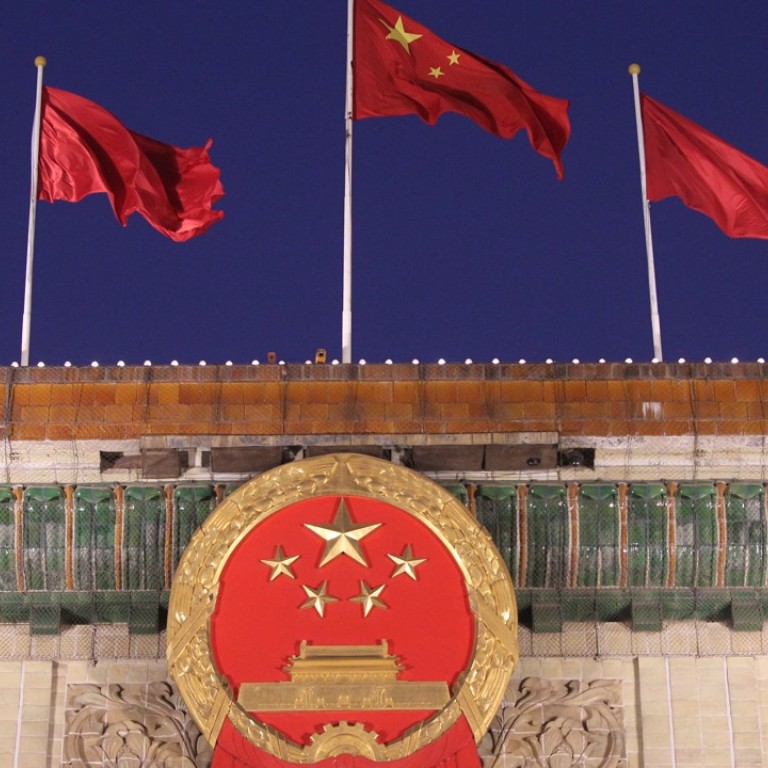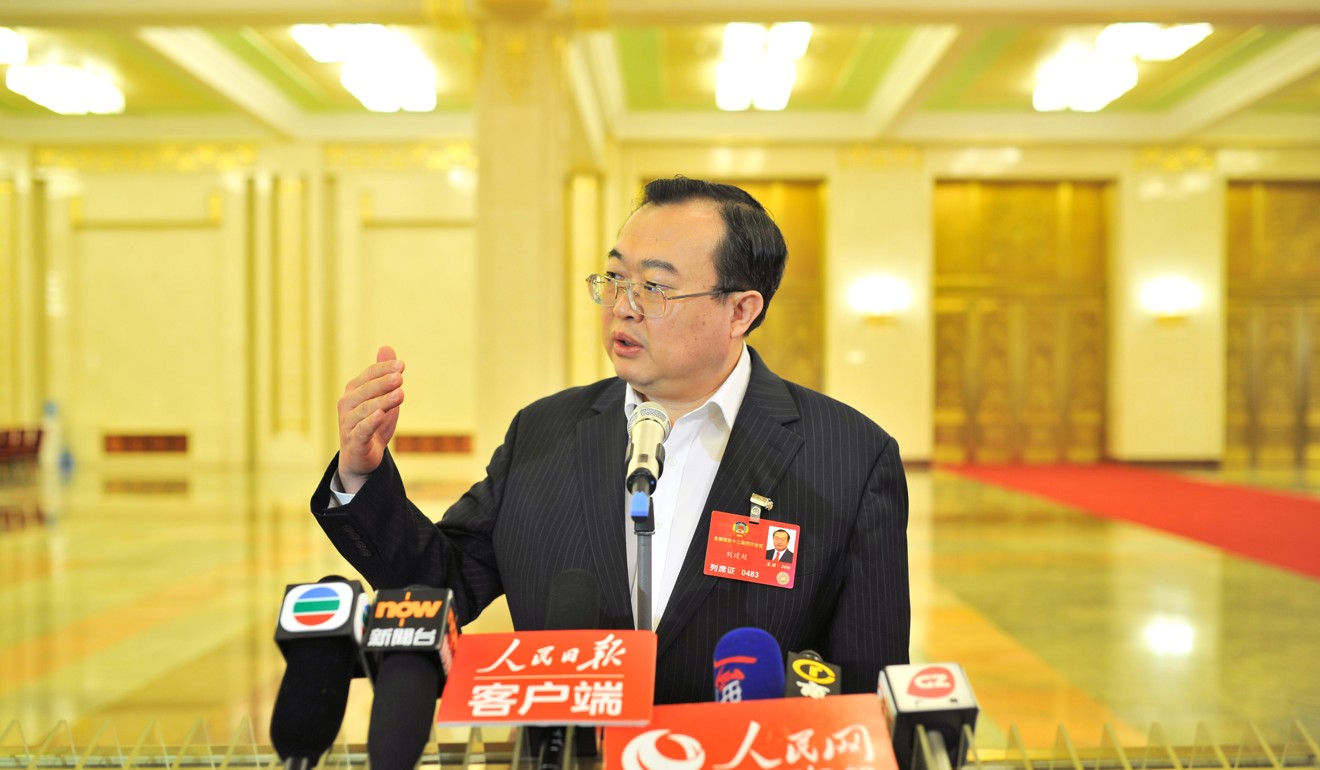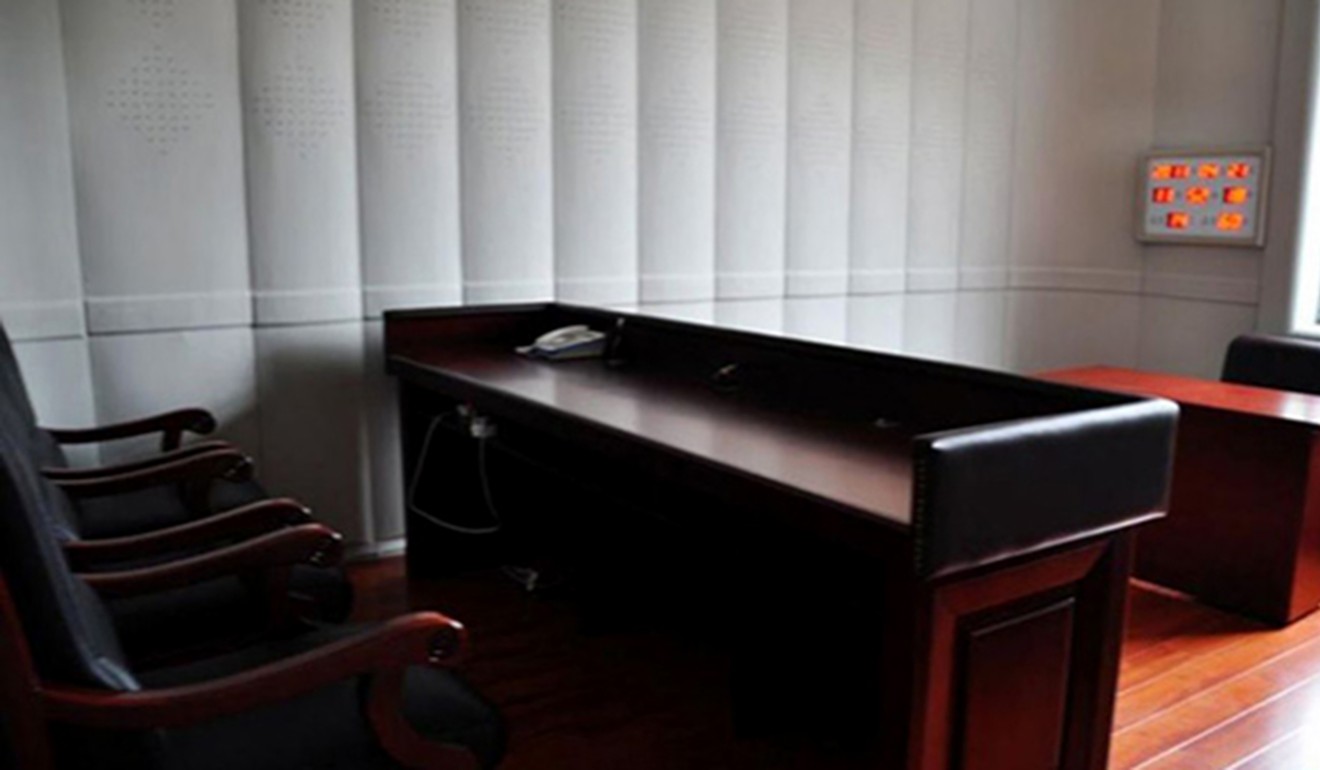
A kinder, gentler new anti-corruption system for China?
Officials running pilot programmes say planned detention procedures offer better protection for suspects but critics say the root problem still hasn’t been tackled
Chinese graft-busters road testing a new anti-corruption procedure insisted on Thursday that the system would protect the rights of those under investigation even though they won’t have access to a lawyer.
In his work report to the Communist Party’s national congress on Wednesday, President Xi Jinping said the party was abolishing its much-criticised secret interrogation practice known as shuanggui, and replacing it with a system called liuzhi, or “detention”.
Rights advocates said suspects subject to shuanggui had been tortured and forced into confessions, and they were unlikely to be treated any better under the new one if denied access to legal representation.
But on the sidelines of the congress on Thursday, officials running pilot liuzhi programmes in Zhejiang and Shanxi provinces since March said corruption suspects were now fairly treated.
Under shuanggui, party discipline inspectors have sweeping powers to interrogate suspects.
However, Zhejiang anti-corruption chief Liu Jianchao said supervisory officials and police officers now took part in the process.
“They watch each other to make sure no law or regulation is violated,” Liu said. “The suspect will get to see a lawyer after the case is handed over to the judiciary.”
He also said liuzhi would be triggered only when subjects were suspected of criminal violations.

Under shuanggui, officials can be interrogated for any discipline violations deemed serious, such as having extramarital affairs.
Shanxi anti-corruption chief Ren Jianhua said the system was more effective because it pooled the resources of the party and prosecutors.
Ren said that between April and September the number of people disciplined in Shanxi rose by 21.9 per cent year on year.
The new system is also being tested in Beijing and is expected to be rolled out nationwide next year.
It is part of a much bigger overhaul of the anti-corruption process that will begin with the introduction of an anti-graft law, possibly in March.
The legislation will lay out rules for the liuzhi system and the network of supervisory commissions that will oversee its implementation.

The commissions will be led by a National Supervisory Commission, a state agency administered by the same people running the party’s graft-buster, the Central Commission for Discipline Inspection.
But unlike the CCDI, which only investigates party members, the new institution will oversee all state employees, including judges, police officers and public school teachers.
The new law is expected to impose a 90-day limit on interrogations, but critics say it fails to address the key problem of the existing system.
Maya Wang, senior researcher at Human Rights Watch, said that by denying access to family and lawyers during an investigation, the new system was unlikely to offer better protection to suspects.
“We are afraid that liuzhi is only a legal version of shuanggui,” Wang said. “The change is about strengthening the power to detain government officials, but little about eliminating the abuses of the old practice.”
The CCDI has disciplined more than 1.4 million cadres since Xi launched an anti-graft campaign in 2012, but critics claim that without checks and balances, the agency has simply been enforcing loyalty to Xi by bringing down his opponents.


